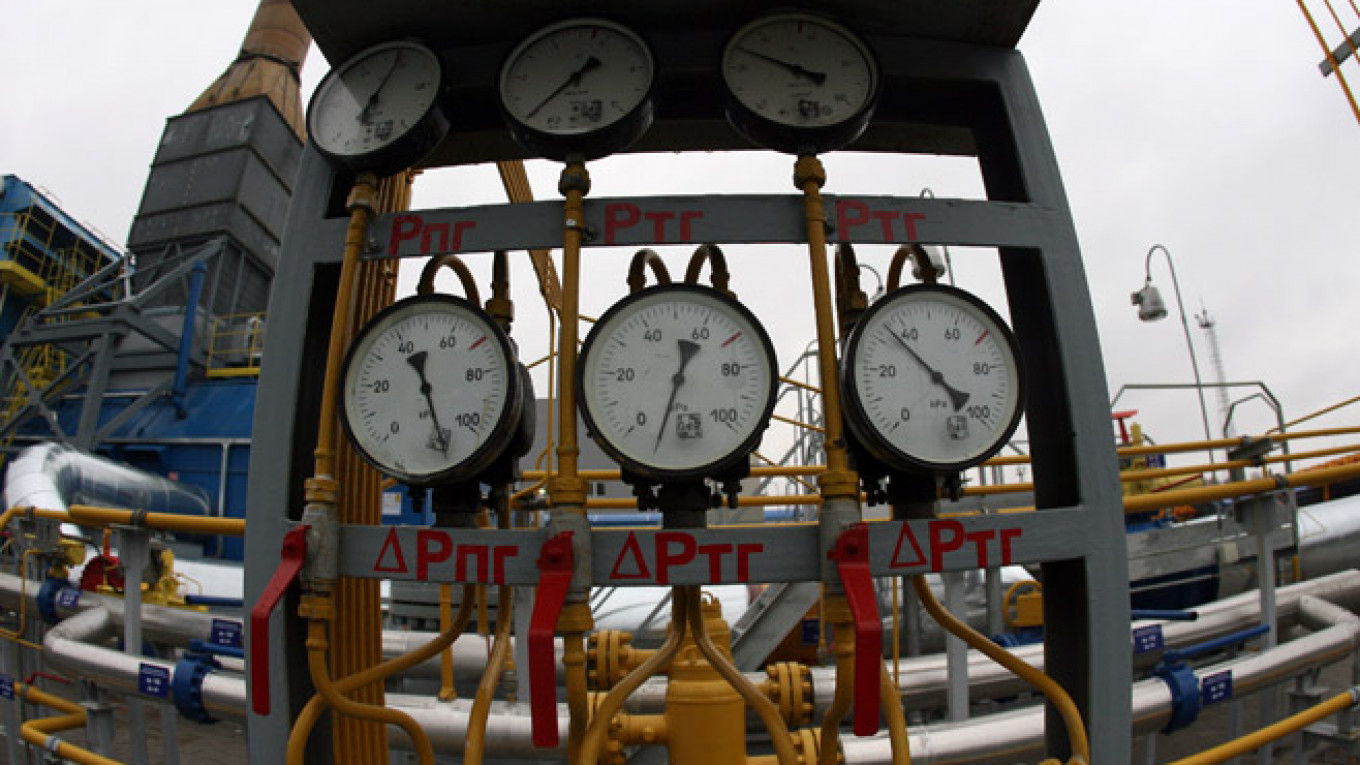A day after winning the Ukrainian presidency, billionaire Petro Poroshenko went on the offensive in his country's gas conflict with Russia, advocating reverse gas supplies from Europe, a cleanup of Ukraine's notoriously dodgy gas sector, and independence from Russia's "energy truncheon" in Kiev.
"For many years gas has been the cause of corruption on all levels [of government], up to the very top — the prime minister, the president. This will be stopped," the newly elected president said at a news conference on Monday, Interfax reported.
Ukraine will now fight for its energy independence, he added, developing unconventional gas resources within the country and boosting reverse gas supplies from Europe.
This is bluster, said Alexander Kava, the head of Ukrainian Center For Political and Economic Analysis: "What Poroshenko says is meant for the ears of his electorate from western and central Ukraine, but these words do not exactly match his own position," Kava said. "A businessman prior to his presidency, Poroshenko is a practical man and will likely look for a compromise solution with Vladimir Putin and will not bring on a further standoff with Russia."
Ukraine has recognized a debt of $2.2 billion for gas supplied in the first three months of this year. Gazprom claims the debt has now risen to $3.5 billion.
The debt is a large portion of what Ukraine needs to avoid bankruptcy as the country's interim government earlier said an urgent $15 billion bailout was needed to keep the struggling economy from toppling over.
Officials in Ukraine have said they will pay down what debt they recognize if Gazprom agrees to set the contract price for further supplies at $268.5 per thousand cubic meters, far below both the average price paid by European buyers of Russian gas — $380 per thousand cubic meters — and Gazprom's proposed price for Ukraine of over $485 per thousand cubic meters.
"The new president will likely try to sign a new contract with new terms, as his predecessor Viktor Yanukovych tried to do. But Russia's and Gazprom's position on the issue is unlikely to change — the maximum that could be given to Ukraine would be another discount," Kava said.
If such a discount is to be granted, Ukraine must first pay its debts, President Vladimir Putin said last week at a news conference following the St. Petersburg International Economic Forum.
"We have already told the government [in Ukraine] that we understand their difficulties and are ready to discuss a discount to the price [for gas]," Putin said, Itar-Tass reported. "But first pay the debt incurred over the period when the previous discount was in effect — up to April 1 of this year," he added.
Ukraine looks ready to play hard ball — the Ukrainian government on Monday ordered the Energy Ministry and Naftogas, Ukraine's state-owned gas company, to hire lawyers to represent the country's interests against Gazprom, the country's Cabinet said in a statement.
Acting Prime Minister Arseniy Yatsenyuk said earlier that Gazprom's reply to notification of arbitration procedures from Naftogaz meant a refusal of a dialog. If nothing changes, he said, Kiev will likely file a law suit to international arbitration court in Stockholm by the end of May in an attempt to push the price down to the discounted rate Ukraine paid before.
Russia is unlikely to yield, and the chances of Ukraine winning the case are very slim, industry analysts said.
Konstantin Simonov, the head of Russian National Energy Security Foundation, said the tactic was unwise. "It is not recommended for unscrupulous partners to go to international arbitration courts. Ukraine has debt from the first quarter and admits it. Until it pays that debt down, no court can rule anything in Ukraine's favor," he said.
But Simonov doubts that Ukraine will pay, meaning that from June, supplies to the country will be frozen. At least in the short term, however, the cut-off will not wreck Ukraine's economy, he said.
"Ukraine does not need Russian gas during the summer, so it has several months to solve all disputes," Simonov said. "But if they are not solved, autumn will come, and then Ukraine's economy and the public sector will suffer. There is no real alternative to Russia's gas, something Poroshenko knows very well."
Contact the author at a.panin@imedia.ru
A Message from The Moscow Times:
Dear readers,
We are facing unprecedented challenges. Russia's Prosecutor General's Office has designated The Moscow Times as an "undesirable" organization, criminalizing our work and putting our staff at risk of prosecution. This follows our earlier unjust labeling as a "foreign agent."
These actions are direct attempts to silence independent journalism in Russia. The authorities claim our work "discredits the decisions of the Russian leadership." We see things differently: we strive to provide accurate, unbiased reporting on Russia.
We, the journalists of The Moscow Times, refuse to be silenced. But to continue our work, we need your help.
Your support, no matter how small, makes a world of difference. If you can, please support us monthly starting from just $2. It's quick to set up, and every contribution makes a significant impact.
By supporting The Moscow Times, you're defending open, independent journalism in the face of repression. Thank you for standing with us.
Remind me later.






